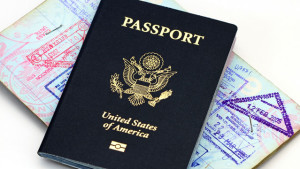Dear Liz: I do not qualify for a coronavirus hardship withdrawal, but I have debt on several credit cards with interest rates above 23%. In 2019, I paid nearly $2,500 in interest charges. I would like to remove $10,000 from my IRA and use it to pay off the debt. I would then put the money that would normally go toward the credit card debt ($500 a month) to pay back the IRA. Would this repayment mitigate some of my tax charges from the withdrawal, and how long do I have to replace the funds, if any?
Answer: Coronavirus hardship withdrawals are available to a large group of people, including those who have lost their jobs or suffered other financial setbacks because of the pandemic, as well as people actually diagnosed with COVID-19, the disease caused by the novel coronavirus.
Coronavirus hardship withdrawals allow people to take out up to $100,000 from individual retirement accounts or 401(k)s without paying early withdrawal penalties or facing mandatory withholding. Income taxes must be paid on the withdrawal, but that bill can be spread over three years.
People who take such withdrawals would have the option of putting the money back within three years. If they can repay the money, they could amend their previous tax returns to get a refund of the taxes they paid on them.
If you don’t qualify for a coronavirus hardship withdrawal, then the rules on taking money from your IRA haven’t changed. You cannot take a loan from an IRA, and any money you withdrew would have to be returned to a qualifying retirement account within 60 days or it’s considered a withdrawal.
You would have to pay income taxes on the withdrawal, plus the 10% federal penalty if you’re under 59½. Most states also tax and penalize such withdrawals.
Even if you could qualify for a coronavirus hardship withdrawal, though, it would be a bad idea to raid your retirement account to pay credit card bills.
Not only is the tax cost high, but you’re also losing the future tax-deferred returns that money could have earned. A $10,000 withdrawal now could mean $100,000 less in retirement funds 30 years from now.
Also, you shouldn’t use an asset that would be protected from creditors to pay debts that could otherwise be erased in case you have to file for bankruptcy.
Too many people drain their 401(k)s and IRAs trying to pay their bills, only to find out too late that their retirement accounts are protected in bankruptcy. Meanwhile, the bills — including credit card balances, medical bills and most other unsecured debts — could have been wiped out.
If you can make your credit card payments but want to reduce your interest costs, you could consider a personal loan to consolidate your debt if your credit is good. If your credit is not good or you are struggling financially, you could contact a credit counselor about a debt management plan that would allow you to pay off your cards over time at lower rates.
You can get referrals from the National Foundation for Credit Counseling.
Another option for people struggling to pay off their credit card debt is to ask the issuers about hardship programs. Many are willing to offer forbearance, which allows cardholders to skip payments, or to temporarily reduce required payments.
If you’re struggling, though, you also should make an appointment with a bankruptcy attorney about your options. You can get referrals from the National Assn. of Consumer Bankruptcy Attorneys.
 Today’s top story: Capital One letting you use miles on takeout, delivery, and streaming. Also in the news: Coronavirus auto insurance refunds – how much to expect, how to school kids on money lessons during the outbreak, and how to check if you’re eligible for food stamps.
Today’s top story: Capital One letting you use miles on takeout, delivery, and streaming. Also in the news: Coronavirus auto insurance refunds – how much to expect, how to school kids on money lessons during the outbreak, and how to check if you’re eligible for food stamps. Today’s top story: Where Coronavirus relief checks go, fraudsters follow. Also in the news: What to do if you’re a U.S. citizen stranded abroad right now, how to strengthen your financial resilience with these 3 insights, and why you should keep paying your federal student loans right now, if you can.
Today’s top story: Where Coronavirus relief checks go, fraudsters follow. Also in the news: What to do if you’re a U.S. citizen stranded abroad right now, how to strengthen your financial resilience with these 3 insights, and why you should keep paying your federal student loans right now, if you can. Today’s top story: Don’t let your Coronavirus relief check disappear into your debts. Also in the news: How to make your car last 200,000 miles, what kind of credit card relief you can request during the pandemic, and how to check the status of your Coronavirus relief payment.
Today’s top story: Don’t let your Coronavirus relief check disappear into your debts. Also in the news: How to make your car last 200,000 miles, what kind of credit card relief you can request during the pandemic, and how to check the status of your Coronavirus relief payment.  Today’s top story: What to know about buying life insurance during the Coronavirus pandemic. Also in the news: How to earn passive income, deferring a personal loan payment, and how to sell your home during the Coronavirus shutdown.
Today’s top story: What to know about buying life insurance during the Coronavirus pandemic. Also in the news: How to earn passive income, deferring a personal loan payment, and how to sell your home during the Coronavirus shutdown.